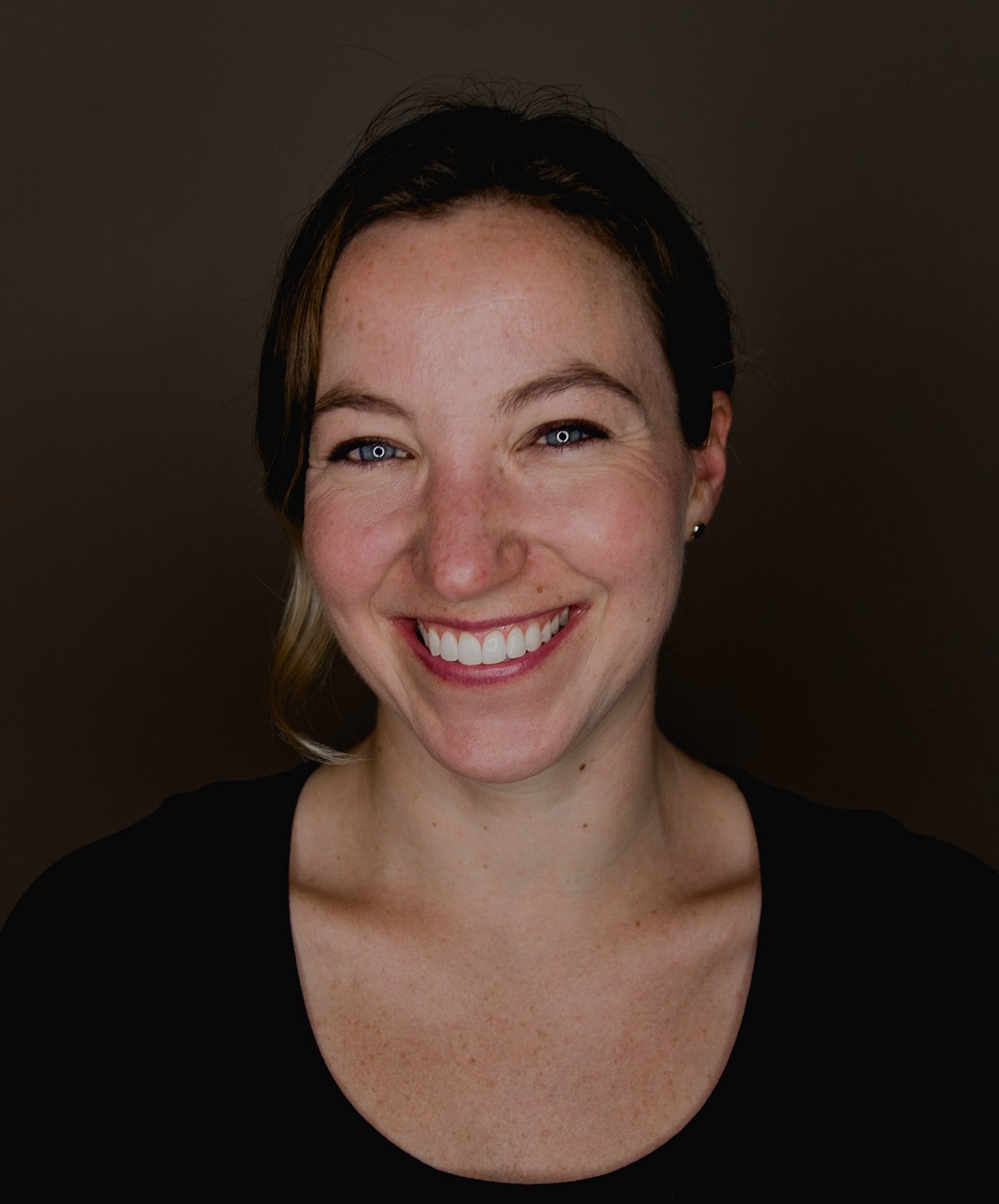Spotlight on Brady Seals of RMI
Brady Seals, a manager at RMI's Carbon-Free Buildings Program, is championing a revolution in our kitchens that promises cleaner air and a healthier future.
Several years ago, very few people—even the most obsessed climate activists—thought much about their stove. Since then, stoves have become one of the most controversial and consequential appliances, thanks in large part, to the work of Brady Seals.
As a manager in RMI's Carbon-Free Buildings program, Seals has spent the last fifteen years passionately advocating for clean energy and exploring the critical intersection of air quality, public health, and building technology.
That work reached the mainstream last year when her study on the negative health impacts of gas stoves went viral and led to a national conversation, and even a response from lawmakers ranging from President Joe Biden’s administration to Texas Senator Ted Cruz.
Central to Seals' work is the issue of gas stoves and their harmful impacts on indoor air quality. Through her research and advocacy, she has persuasively argued for the adoption of induction cooking technologies, which offer a more energy-efficient and healthier alternative for residents. Seals' insights draw from numerous studies that highlight the significant health risks posed by gas stoves, which emit pollutants like nitrogen dioxide and benzene that can exacerbate respiratory conditions such as asthma and even increase cancer risk.
Beyond her research, Seals has been a powerful voice in communicating the urgent need for regulatory and behavioral changes to mitigate these risks. Her efforts are part of a broader conversation about the sustainability of domestic energy use, emphasizing how improved building codes and consumer education can lead to healthier living environments while contributing to larger climate change goals.
We had the opportunity to speak with Seals about her groundbreaking work, the challenges she's faced in raising awareness about the dangers of gas stoves, and her vision for a cleaner, healthier future.
This interview has been edited for length and clarity.

Can you tell me about your role at RMI?
Brady: “I work on RMI's carbon-free buildings program. Specifically, I look at the climate and health impacts of electrifying buildings and how moving to more efficient and all-electric buildings can improve the climate, our lives, and our health.
Our team has three main goals: build the narrative, broaden the network, and influence policy.
Building the narrative is about sharing how buildings can be good for climate and health.
Broadening the network is about including new partners in the conversation. For example, many climate organizations are adopting more health messaging, but also health-forward organizations are adopting climate messaging. My team actively brings health-forward organizations into the climate conversation. We work with health advocates and health professionals. Talking to your own doctor is a great way to get started.
We also work extensively with academic institutions, including Harvard, Stanford, Yale, Boston University, and the University of North Carolina, on research-to-action partnerships, which is one of my favorite parts of the job.
About RMI
Founded in Colorado in 1982 as Rocky Mountain Institute, RMI is an independent, nonpartisan nonprofit transforming global energy systems through market-driven solutions to align with a 1.5°C future and secure a clean, prosperous, zero-carbon future for all. They work in the world’s most critical geographies and engage businesses, policymakers, communities, and nongovernmental organizations to identify and scale energy system interventions that will cut greenhouse gas emissions by at least 50 percent by 2030.
My team explores how to use research, science, and evidence for climate action.
This brings me to our third priority, policy. Historically, that has looked like “all-electric” local policies, and now, with the Inflation Reduction Act and other federal policies, there's a huge opportunity to incorporate some of the health and climate messaging into federal policy. In this day and age, policy is where we see we can have the biggest impact.”
And how did you get here? What's your background?
Brady: “I worked on clean cookstoves projects across 19 countries, mainly in Africa and the Caribbean, helping people move from wood and charcoal to cleaner alternatives.
After about ten years, I was getting burnt out on the challenges of international stove projects and wanted to do something else, so I came to RMI. I thought I'd be focused on various other things, but here I am doing lots of work on gas stoves.
I'm now completing the stove transition and helping people move from gas stoves to electric stoves, which are the cleanest and healthiest alternatives.”
And what climate solutions are you excited about right now?
Brady: “I'm excited about induction stoves, but we are working on many more great solutions focused on climate and health in buildings.
For example, we do a lot of work on indoor air quality in general. Indoor air quality is particularly relevant in Colorado given the increase in wildfire smoke exposure. Our team looks at how we can make our homes cleaner and safer when we have to close all our windows and not rely on outdoor air.
Also, in Colorado, where most people don't traditionally have air conditioning, we want to know how to find smart solutions to help keep us healthy and safe when temperatures keep increasing.
Relatedly, we're doing a lot of work on schools. How can we make them more resilient and healthier for students? One way is to replace old HVAC systems, furnaces and boilers, and put in heat pumps and better ventilation. Retrofits like this benefit the climate and also student health and learning. I think a big next topic for us is resilience, tackling some of the harder questions like power outages, which will likely become increasingly relevant for us here in Colorado.”
How has being located in Colorado impacted your career work, and is there anything about the Colorado climate community that has been supportive or impactful to your career?
Brady: “I've learned so much from different people based in Colorado. Living in Boulder, I love that the chances are high of randomly bumping into someone working in climate or sustainability on the trail or on the bike path.
I love how broad the climate space is here. We get focused on whatever area we're working in, and for me, that's buildings. But it's so nice to talk to other people who are working on, say, human composting or just things I don't think about on a day-to-day basis.
Living here and having access to the outdoors the way we do really gives another appreciation and protection for why we're working on this. Let's be honest; working in climate right now can feel very hard and daunting, especially with the election coming up. I love that many like-minded people in Colorado work hard on these issues but then also get out and enjoy the earth, the trails, and all the things and realize why it's so important to protect this for us and future generations.”
Are there any significant challenges in your climate work right now that the community could help with?
Brady: “We're working on all electric appliances like induction stoves and heat pumps, but many of us, myself included, had never cooked on an induction stove or seen a heat pump before. To see the change we need in this sector, we need this to become a kitchen table issue. That means people talking about it to their colleagues and friends. That means having a dinner party and being excited to show off your heat pump or cook a meal for others on your induction stovetop.
There are significant challenges for building electrification. Buildings account for 10% of the country's carbon emissions, which is huge, but there's been no progress on this. Virtually every other sector has seen progress except buildings. And it's going to take individual choices as well as policy change.
People are going to have to want all electric appliances. There's something powerful about the community realizing they're great for the climate. I've seen a significant effect from friends and family in Colorado of talking to people about how important a solution this is and making some of these real kitchen table issues.”
What is something climate or sustainability-related that you do outside of your work that you’re passionate about?
Brady: “The statistics about the fashion industry’s pollution are wild. It inspired me to try a capsule wardrobe. I’ve simplified my clothing and now rarely buy anything and I try to buy secondhand when needed.”





